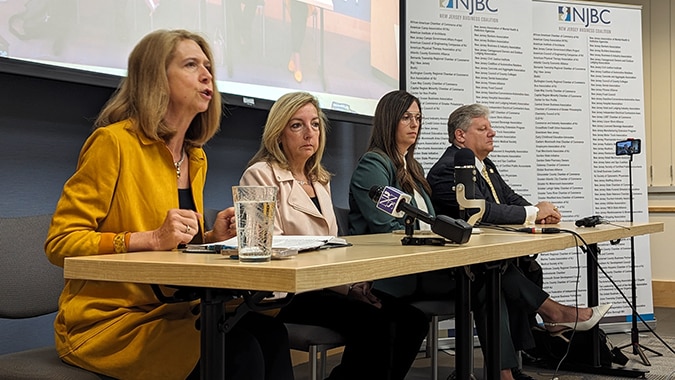 LAWRENCEVILLE, NJ (July 23, 2019) — Offensive comments in the workplace — including those about gender, race, sexual orientation, and religion — are down in New Jersey since 2017, according to the fourth annual New Jersey State of Diversity Survey, commissioned by Taft Communications and the New Jersey Business & Industry Association (NJBIA).
LAWRENCEVILLE, NJ (July 23, 2019) — Offensive comments in the workplace — including those about gender, race, sexual orientation, and religion — are down in New Jersey since 2017, according to the fourth annual New Jersey State of Diversity Survey, commissioned by Taft Communications and the New Jersey Business & Industry Association (NJBIA).
Taft has polled New Jerseyans since 2016 to gain insights into the day-to-day reality of diversity in the state and to probe public attitudes about it. The latest poll, developed in conjunction with NJBIA, and conducted by the Fairleigh Dickinson University Poll, was in the field from May 29 to June 4, and is based on the responses of 541 randomly selected working adults in New Jersey.
Since the poll was initiated, it has tracked noticeable strides in creating a more diverse and inclusive work environment in New Jersey.
- The number of respondents who have never had any form of training focusing on the value of diversity and cultural awareness at their workplace has decreased to 28% in 2019 from 47% in 2016.
- The number of people who interact daily with with someone of a different race or ethnicity from themselves in the workplace has increased to 89% in 2019 from 83% in 2016. This number is significantly lower outside of the workplace where only 67% interact with someone of a different race or ethnicity in 2019, though that percentage has also risen from 59% in 2016.
“Our fourth consecutive New Jersey State of Diversity survey shows some very positive trends around workplace inclusion,” said Taft President Ted Deutsch. “Our polling aims to raise awareness about a number of these sensitive tissues so that employers and employees can work together to keep striving toward less bias and more equality.”
“One of New Jersey’s strengths is its diverse workforce,” said NJBIA President & CEO Michele N. Siekerka. “The survey results underscore the great strides New Jersey employers have made in creating workplaces that are open and inclusive. In fact, there is not a day that goes by when I don’t talk to a business leader who is engaged in diversity and inclusion work in some manner, from formal training to informal roundtables. We’re also seeing a rise in company Employer Resource/Support Groups. Given the wide diversity of our state and workforce, some of these statistics are very encouraging to see.”
“It’s good to see a trend moving in the right direction,” said Krista Jenkins, Director of the Fairleigh Dickinson University Poll and Professor of Political Science. “Even though the Garden State may be criticized for having taxes that are too high and roads that are too bumpy, these numbers show the commitment that employers and employees have for fostering an inclusive and respectful workplace environment.”
While overall survey respondents agree that offensive remarks in the workplace are on the decline, women are almost 10% more likely than men to say that they “never” hear offensive comments at work when it relates to gender, race, sexual orientation and religion.
A series of questions asked since 2017 explored the prevalence of offensive comments directed toward various groups.
Please tell me how often, if at all, you hear things that could be offensive to women.
- 70% of those surveyed said “never” in 2019, an improvement from 66% in 2017.
- Those who said such comments are heard “very often” was 5% in 2017 and remained at that level in 2019.
Please tell me how often, if at all, you hear things that could be offensive to racial and ethnic minorities.
- 67% of those surveyed said “never” in 2019, an improvement from 57% in 2017.
- 4% said “very often,” down from 7% in 2017.
Please tell me how often, if at all, you hear things that could be offensive to lesbian, gay, bisexual, and transgendered.
- 73% of those surveyed said “never” in 2019, an improvement from 67% in 2017.
- 3% of those surveyed said “very often,” down from 5% in 2017.
Please tell me how often, if at all, you hear things that could be offensive to Muslims.
- 75% of those surveyed said “never” in 2019, an improvement from 60% in 2017.
- 1% of those surveyed said “very often,” down from 5% in 2107.
Please tell me how often, if at all, you hear things that could be offensive to Jews.
- 77% of those surveyed said “never” in 2019, an improvement from 72% in 2017.
- 3% of those surveyed said “very often,” compared to 4% in 2017.
Full 2019 poll results are available here. You can also view the results of the 2018 State of Diversity Survey, as well as the 2017 and 2016 poll results.

